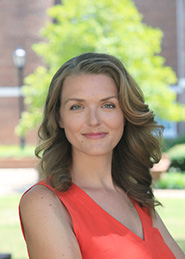
In early January, four of our scholars—Howard Nusbaum, David Carr, John Haldane, and Robert C. Roberts—and our 2 Principal Investigators—Jennifer Frey and Candace Vogler—all participated in a conference on Character, Wisdom, and Virtue held January 5, 6, and 7, 2017 at Oriel College, Oxford, UK, sponsored by the Jubilee Centre for Character and Virtues at the University of Birmingham, UK. We are pleased to feature their abstracts and papers here on the Virtue Blog, with many thanks to the Jubilee Centre. http://jubileecentre.ac.uk
 Jennifer A. Frey is an Assistant Professor in the Philosophy Department at the University of South Carolina. Prior to joining the Philosophy faculty, she was a Collegiate Assistant Professor of Humanities at the University of Chicago, where she was a member of the Society of Fellows in the Liberal Arts and an affiliated faculty in the philosophy department. She earned her PhD in philosophy at the University of Pittsburgh, and her B.A. in Philosophy and Medieval Studies (with Classics minor) at Indiana University-Bloomington. Her research lies at the intersection of philosophy of action and ethics, with a particular focus on the Aristotelian-Thomist tradition.
Jennifer A. Frey is an Assistant Professor in the Philosophy Department at the University of South Carolina. Prior to joining the Philosophy faculty, she was a Collegiate Assistant Professor of Humanities at the University of Chicago, where she was a member of the Society of Fellows in the Liberal Arts and an affiliated faculty in the philosophy department. She earned her PhD in philosophy at the University of Pittsburgh, and her B.A. in Philosophy and Medieval Studies (with Classics minor) at Indiana University-Bloomington. Her research lies at the intersection of philosophy of action and ethics, with a particular focus on the Aristotelian-Thomist tradition.
Below you will find her short abstract, followed by a link to the larger paper discussed at the conference, “Action, Knowledge, and Human Goodness:A Prolegomena to a Theory of Practical Wisdom”.
ABSTRACT: “Action, Knowledge, and Human Goodness:A Prolegomena to a Theory of Practical Wisdom”
Aquinas and Anscombe both held that human action essentially involves a certain kind of practical self- knowledge. I argue that this knowledge is knowledge of action under descriptions that the agent can in principle connect to her general conception of how to live a good human life. An agent demonstrates her ability to make such connections by giving reasons. These rational connections between the particular action and the general practical knowledge of how to live are made explicit in the construction of practical syllogisms, understood as heuristic devices that make explicit the practically rational grammar of the act itself. Such an account of action, I argue, is the necessary foundation for any virtue ethics in which practical wisdom plays an important role. For any theory of practical wisdom must be able to show how it is the virtue that perfects the practical intellect, the faculty that provides the faculty of choice with a particular object of pursuit or avoidance, under some descriptions that can be rationally related to happiness.
Read the full paper here: http://jubileecentre.ac.uk/userfiles/jubileecentre/pdf/conference-papers/CharacterWisdomandVirtue/Frey_J.pdf